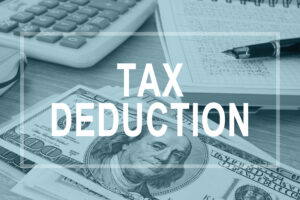Will Fewer Audits Lead to More Cheating?
There’s an old saying that cheaters never prosper. Of course, there are probably many people who have gotten away with cheating that would beg to differ. When it comes to taxes, however, it’s always best to avoid cheating. Surely, some people do get away with it, but if you ever get caught it could cost you dearly. So why all the talk about cheating? We certainly don’t condone cheating on your taxes at GROCO, but some people might be under the impression that this could be a good year to try.
Why is that? Well, according to recent reports from the IRS, because of budget cuts, the agency will be doing a lot fewer audits this year. That means more false or erroneous returns are likely to slip through the cracks. While fewer audits are good news for taxpayers, it could also be bad news at the same time for those who are chosen for audits. The IRS estimates it will do about 1 million audits this year, down from 1.2 million in 2014 and 1.4 million in 2012.
You might think that with fewer audits to perform the process might go a little quicker, but with a depleted staff the IRS expects that the audit process could actually take longer than normal. In any case, with fewer audits expected the IRS warns that that is not a reason for people to think they can get away with brazen cheating.
Plus, even though you might avoid an audit this year, the IRS has three years to go back and audit a return after it has been filed. Plus, if someone bluffs on their income by 25 percent or more the tax agency has as long as six years to review his or her return. Add to that the fact that the IRS’s budget could improve in coming years, which would give them more money and staff to work with, and cheating on your taxes should seem less tempting.
Commonly Overlooked Tax Deductions
Commonly Overlooked Tax Deductions As the tax filing deadline approaches, taxpayers are always looking for legitimate tax deductions they may have overlooked. For example, did you know you can deduct the money your business spent to purchase office supplies during the year? As long as these expenses were for items that are ordinary and necessary…
Tax Benefits of Owning a Home
Tax Benefits of Owning a Home Deducting mortgage interest In most cases, you can fully deduct your mortgage interest secured by your primary or secondary home. Beginning in 1987, mortgage interest to buy, build, or improve your home (acquisition debt) up to $1,000,000 or home equity loans up to $100,000 became tax deductible. Points (also known…
Popular Tax Credits for First-Time Homebuyers, Students and Those With Childcare
Popular Tax Credits for First-Time Homebuyers, Students and Those With Childcare By Victor Omelczenko 1/26/2009 Whether you’re looking to lower your tax bill or increase your refund, these IRS tips can help your bottom line. Tax credits can help pay the cost of raising a family, going to college, saving for retirement or getting day…
Profit From Your Children
Profit From Your Children Profit from your children? Making maximum use of your dependents can help slash your taxes significantly. “Dependents” generally mean your kids, but many of these gambits also work with low-income parents you might be assisting financially — even if they aren’t your dependents. Here are a few to consider. Hire your…


